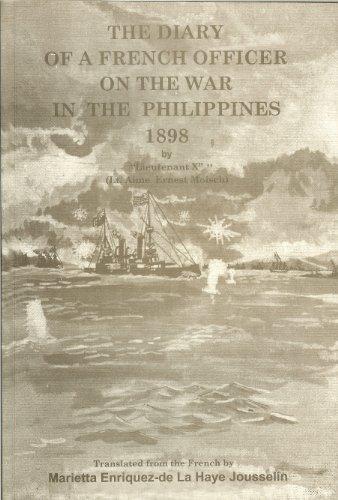The Insurgents
It is becoming certain that the Tagal and American alliance will not last. The Americans have confirmed that in the battle of Malate, they did not defend the insurgents. Instead of being supportive, they maintained a rather hostile neutrality. The degree of friendship between the two has been dictated by the Americans’ need for soldiers until their own troops arrive. Prior to the start of open hostilities in April, Commodore Dewey treated Aguinaldo as an equal, recognizing the fact that after the battle of Cavite, the Americans had not made any real progress towards the possession of the islands. Consequently, as their troops increased, they were able to put more distance between them and the insurgents. When their soldiers are in place, and they can negotiate from a position of strength, the Yankees will treat their former allies as rebels if they refuse to accept the former as their superiors. Once this happens, the Filipino will become an alien in this country once more.
But the situation has not yet reached that point. And yet, before yesterday, the insurgents were forced to surrender Paco to General Greene’s soldiers who had settled there equipped with 22 cannons. Aguinaldo’s troops were left with no alternative but to decamp. They were not consulted, and orders were given without explanation. The deterioration of this situation resulted upon the arrival of the third convoy between the 25th and the 30th of July. It was quite evident that Admiral Dewey was no longer collaborating with Aguinaldo after July 17, the arrival of the second convoy, although in the initial stage, when the first fleet of the convoy arrived, Dewey readily provided Aguinaldo with arms.
The insurgents have been armed with 30,000 guns, of which 11,600 are Remingtons and Mausers offered to them by Commodore Dewey at the end of May. These men, numbering anywhere from 30,000 to 70,000 have cut all communication between Manila and the rest of the country. On the island of Luzon, they have taken around 5,000 prisoners. Not only have they disbanded the Spanish defense, but more importantly, they have also been instrumental in having 18,000 men of the local militia desert their posts. Today, they must surely regret that they did not muster all these forces for their own interest. Instead of awaiting the arrival of the American troops to join forces with Admiral Dewey against Manila, they were clever enough to force him to reach a compromise with them before that. If they were daring enough, they could have entered Manila six weeks ago and Dewey would have been obliged to follow them. But if they enter Manila tomorrow, chances are they will be ordered to remain no farther than the entrance to the city. Dewey may not have the skills of a war tactician, but is certainly a shrewd politician capable of fooling an entire country.
